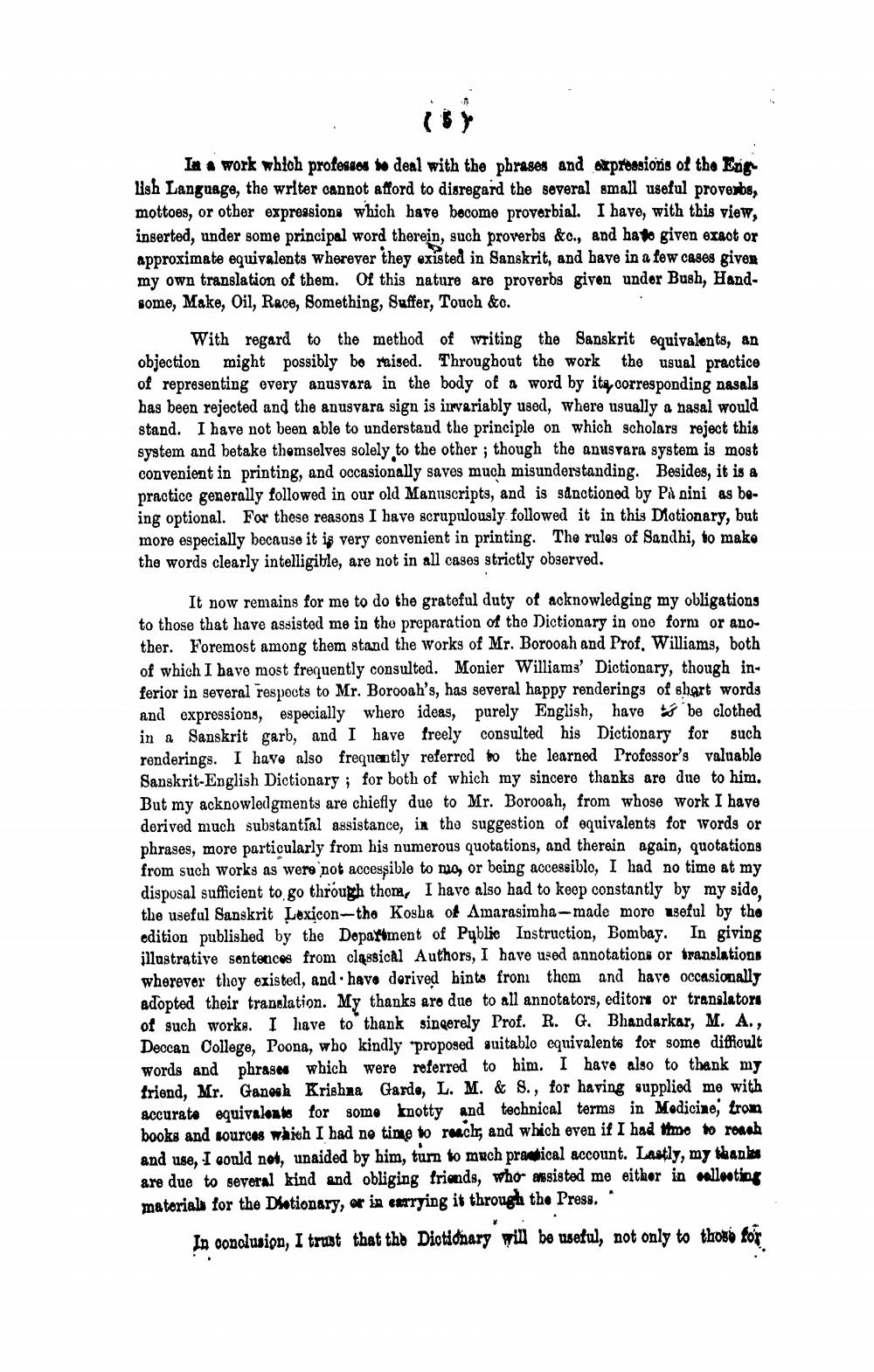________________
(BY
In a work which professes to deal with the phrases and expressions of the English Language, the writer cannot afford to disregard the several small useful proverbs, mottoes, or other expressions which have become proverbial. I have, with this view, inserted, under some principal word therein, such proverbs &c., and have given exact or approximate equivalents wherever they existed in Sanskrit, and have in a few cases given my own translation of them. Of this nature are proverbs given under Bush, Handsome, Make, Oil, Race, Something, Suffer, Touch &c.
With regard to the method of writing the Sanskrit equivalents, an objection might possibly be raised. Throughout the work the usual practice of representing every anusvara in the body of a word by ita corresponding nasals has been rejected and the anusvara sign is invariably used, where usually a nasal would stand. I have not been able to understand the principle on which scholars reject this system and betake themselves solely to the other; though the anusvara system is most convenient in printing, and occasionally saves much misunderstanding. Besides, it is a practice generally followed in our old Manuscripts, and is sanctioned by Pa nini as being optional. For these reasons I have scrupulously followed it in this Dictionary, but more especially because it is very convenient in printing. The rules of Sandhi, to make the words clearly intelligible, are not in all cases strictly observed.
It now remains for me to do the grateful duty of acknowledging my obligations to those that have assisted me in the preparation of the Dictionary in one form or another. Foremost among them stand the works of Mr. Borooah and Prof. Williams, both of which I have most frequently consulted. Monier Williams' Dictionary, though inferior in several respects to Mr. Borooah's, has several happy renderings of shart words and expressions, especially whero ideas, purely English, have be clothed in a Sanskrit garb, and I have freely consulted his Dictionary for such renderings. I have also frequently referred to the learned Professor's valuable Sanskrit-English Dictionary; for both of which my sincere thanks are due to him. But my acknowledgments are chiefly due to Mr. Borooah, from whose work I have derived much substantial assistance, in the suggestion of equivalents for words or phrases, more particularly from his numerous quotations, and therein again, quotations from such works as were not accessible to mo, or being accessible, I had no time at my disposal sufficient to go through them, I have also had to keep constantly by my side, the useful Sanskrit Lexicon-the Kosha of Amarasimha-made more useful by the edition published by the Department of Public Instruction, Bombay. In giving illustrative sentences from classical Authors, I have used annotations or translations wherever they existed, and have derived hints from them and have occasionally adopted their translation. My thanks are due to all annotators, editors or translators of such works. I have to thank singerely Prof. R. G. Bhandarkar, M. A., Deccan College, Poona, who kindly proposed suitablo equivalents for some difficult words and phrases which were referred to him. I have also to thank my friend, Mr. Ganesh Krishna Garde, L. M. & S., for having supplied me with accurate equivalents for some knotty and technical terms in Medicine, from books and sources which I had no time to reach, and which even if I had time to reash and use, I could not, unaided by him, turn to much practical account. Lastly, my thanks are due to several kind and obliging friends, who assisted me either in alleeting materials for the Dictionary, or in carrying it through the Press.
In conclusion, I trust that the Dictionary will be useful, not only to those for




